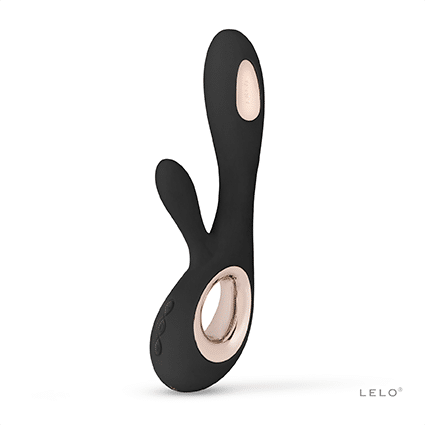 This article was written by Dr. Justin Lehmiller, a social psychologist, researcher and award-winning educator. For more information:
This article was written by Dr. Justin Lehmiller, a social psychologist, researcher and award-winning educator. For more information:
Website | Publications | Instagram
OCD is a term that people often use casually. For instance, those who consider themselves to be “germaphobes” or “neat freaks” may describe themselves as being OCD about cleanliness. However, this minimizes the fact that OCD (obsessive-compulsive disorder) is a serious mental health condition that has major implications for the lives of millions of people around the world.
OCD affects 1.5% of women and 1% of men during their lifetime and it involves having repeated, intrusive thoughts (obsessions) that spur them to engage in specific behaviors over and over again (compulsions). While cleaning and hand washing can indeed fall under the realm of OCD, this disorder can span a wide range of thoughts and behaviors, including sex.
Regardless of whether the thoughts and behaviors specifically involve sex, OCD can have major implications for the intimate lives of persons who have this disorder. In this article, we’ll explore some of the more common impacts of OCD on people’s sex lives and tips for managing them.
Sexual OCD
For roughly 20-30% of people with OCD, their obsessions are sexual in nature. These obsessions often revolve around sexual taboos, such as infidelity or even sexual violence. These individuals experience unwanted, intrusive thoughts about engaging in deviant behaviors that they find to be highly distressing.
Whether they act on these obsessions is another story, though. For many people with OCD, they intentionally avoid sex out of fear that they will act on their obsession.
Another common form of sexual OCD revolves around sexual orientation. In this case, the person may experience repeated thoughts and fears that their sexual orientation will change, which may lead them to seek reassurance from others about their sexuality. When this involves fear that one might become gay, it is known as “homosexual obsessive-compulsive disorder” (HOCD).
OCD can also involve relationship obsessions, such as obsessing over whether you’re in the “right” relationship, whether you are attracted to your partner, and whether your partner truly loves you.
Intrusive Thoughts During Sex
For persons with OCD, sex itself can trigger intrusive thoughts, regardless of whether one has sexual OCD. For instance, sex can trigger cleanliness obsessions due to exchange of body fluids. This can also prompt non-stop worry and anxiety that one is going to contract a sexually transmitted infection any time they have sex.
Likewise, when OCD revolves around sexual orientation, someone might begin to question their sexuality during sex and wonder whether they’re actually attracted to persons of another gender.
OCD can show up in myriad ways during sex, but the net effect is that it makes it hard to truly be in the moment and enjoy sex due to feelings of distraction. For this reason, it is not surprising that research has found that persons with OCD report high rates of sexual dissatisfaction.
OCD and “Sex Addiction”
Despite all we hear in the popular media about “sex addiction,” this is not an actual medical diagnosis and there is much scholarly debate about whether sex itself can be addictive. However, the World Health Organization recognizes something called compulsive sexual behavior disorder. This is similar to what many people think of when they use terms like “sex addiction,” “hypersexuality,” and “nymphomania,” and it sometimes co-occurs with OCD.
It involves engaging in repetitive sexual activities or behaviors that cause interference in everyday life. However, it’s different from simply having a healthy, but high libido because their behavior truly feels out of control and is negatively impacting their life.
For example, this might involve seeking out sex frequently in order to confirm one’s sexual orientation. It might also involve initiating sex with one’s partner frequently in order to confirm that they’re truly attracted to them, or that their partner isn’t going to leave them. It could also involve having a string of affairs.
Importantly, the sex that they’re having is often not gratifying because it stems from an underlying worry or anxiety. And while this compulsive sex may temporarily relieve anxiety, it may actually make the anxiety worse over time.
While OCD and high sex drive are often thought of as going together, research actually finds that the rate of compulsive sexual behavior disorder is the same in persons with and without OCD. OCD and compulsive sexual behavior disorder are technically separate disorders, meaning you can have one without the other (or you can have both).
OCD falls on the spectrum of obsessive-compulsive disorders (which also include things like body dysmorphic disorder and pathological gambling), whereas compulsive sexual behavior disorder falls on the spectrum of impulse control disorders (which also includes things like pyromania and kleptomania).
OCD After Sex
As mentioned above, for persons with OCD, sex can sometimes provide temporary relief. At the same time, however, sex can potentially worsen symptoms by flooding the brain with even more intrusive thoughts, leaving them in an even higher state of anxiety than they were in before.
To the extent that sex worsens symptoms, it can put a damper on desire and, for some, it can lead them to avoid sex altogether because they know the kind of thoughts it will trigger.
In fact, sexual avoidance can actually become the new compulsion in this case. People may seek to avoid anything even remotely sexual or intimate due to fear of intrusive thoughts. However, avoiding one’s triggers is a short-term solution that can actually lead to other problems, such as relationship conflict.
What To Do If OCD Is Affecting Your Sex Life
If you have OCD (or think that you might) and this is interfering with your intimate life, it’s important to speak with your healthcare provider to ensure a proper diagnosis and develop a treatment plan based on your unique symptoms.
Fortunately, there are many solutions available. For example, medications can help in alleviating many OCD symptoms; however, they are a double-edged sword because some of these meds can cause sexual side effects, such as reduced libido and difficulties with arousal and orgasm.
This is why exposure and response prevention (ERP) is often used in the treatment of OCD. This is a form of exposure therapy in which you’re gradually exposed to your triggers, but given tools to respond to them effectively so that you can begin to resist your compulsions.
Other things that can help include practicing mindfulness exercises, as well as getting your partner involved so that they know how to support you most effectively.
OCD doesn’t have to wreck your sex life, but it’s important to seek professional help to find the solution that’s right for you.
Discover pleasure with:







